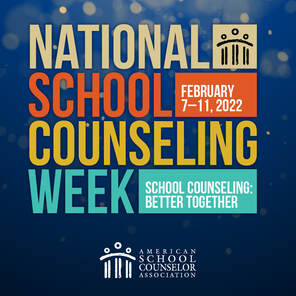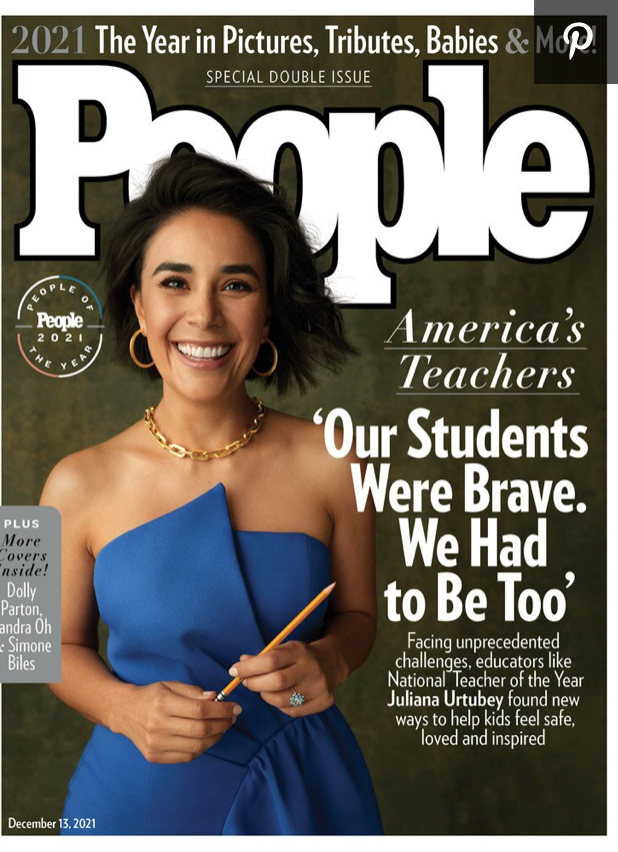|
By: Shaunna Harrington, Ph.D. MASCD President Associate Teaching Professor, Northeastern University @shaunna3830 Email Shaunna  It is National School Counseling Week and I want to take this opportunity to recognize the important role school counselors play in the Whole Child approach to education -- to ensuring that “each child, in each school, in each community is healthy, safe, engaged, supported and challenged.” School counselors are critical to the work of creating and sustaining equitable and inclusive schools. They have a unique perspective on what is going on in our schools because they work across the domains of academics, social-emotional development, and college and career readiness. Over the past 15 years, there has been a paradigm shift in how districts and schools envision the role of school counselors. In Massachusetts, this ongoing transformation has been led by the Massachusetts School Counselors Association (MASCA) through their Framework for Comprehensive School Counseling Programs (Model 3.0 was released in 2020). The vision guiding the Model is to move school counseling from a “reactive, crisis-based model that was the 20th century norm” to a “proactive, programmatic approach.” In this approach, school counselors provide Tier 1 supports, in addition to Tier 2 and Tier 3 supports, which means all students get to work with a school counselor. In schools using the Model, school counselors use data to identify issues impacting students, and play leadership roles in advocating for, and helping to implement, effective interventions. Now more than ever, as our children and adolescents continue to grow up and go to school during a global pandemic, our students need to be in schools with an adequate number of school counselors. The American School Counseling Association (ASCA) recommends a ratio of no more than 250 students for every 1 school counselor. In Massachusetts, the ratio is 307:1 (based on data from 2015-16). About 1 in 5 students in Massachusetts, nearly 200,000 students, do not have access to any school counselor, and 30% of high school students, about 84,000 students, are enrolled in a school where there is not a sufficient number of school counselors. It is important to recognize that school counselors are allocated inequitably across schools in the Commonwealth. EdTrust explains, “Massachusetts is shortchanging its students of color and students from low-income families, by providing fewer school counselors in schools with more of these students.” Several studies have shown there are positive impacts when school counselors work with a smaller caseload. Students from low-income families and students of color in particular benefit from having more access to school counselors. High-poverty schools that meet the recommended ratio have better outcomes for students, such as improved attendance, fewer disciplinary incidents, and higher graduation rates. Black students are more likely than their white peers to identify their school counselor as the person who had the most influence on their thinking about postsecondary education. Our students need more school counselors in Massachusetts and across the U.S. At the end of 2021, Massachusetts Representative Katherine Clark, along with Senator Jeff Merkely of Oregon, introduced the Elementary and Secondary School Counseling Act (H.R.6214), which would provide direct funding to states to lower the staffing ratios for school counselors, school psychologists and school social workers in order to “effectively staff the high-need public elementary schools and secondary schools of the United States with school-based mental health services providers”. The bill has not yet been voted on. Let’s use next week’s National School Counseling Week to focus on making changes that can increase the positive impact of school counseling for our students.
0 Comments
By: Shaunna Harrington, Ph.D. MASCD President Associate Teaching Professor, Northeastern University @shaunna3830 Email Shaunna
I love seeing teachers recognized and celebrated as the People of the Year! But I am also wary of superficial accolades that fail to lead to better conditions for teachers in the complex, challenging work they do each day. Many teachers have shared with me that this school year (2021-22) has felt harder than last year (2020-21). They don’t want to romanticize what it was like to teach remotely and to teach in a hybrid model, but they say last year social-emotional needs and relationships were prioritized, flexibility and generosity were valued, and new ideas and strategies were embraced – and that this year, much of that has been lost in the effort to quickly “get back to normal” and make up for “learning loss.”
We are back in school buildings now, but students are still struggling with the challenges of growing up and going to school during a pandemic. More than 140,000 children in the U.S. have lost a parent, a custodial grandparent, or grandparent caregiver to Covid-19. Educators are still struggling with how to meet the additional needs of their students while also having to deal with attacks on antiracist education, staffing shortages, and some community members who oppose masks and other public health safety measures. Large numbers of teachers are reporting that they feel burned out and demoralized. We need healthy teachers to support healthy growth in children, and that means our society needs to take seriously our investment in teacher well-being. Some of the most impactful steps are for schools to offer comprehensive mental health supports; reduce the extensive demands on teachers; and empower teachers in decision making. Teachers serve one of the most important roles in our society. Let’s shout that from every magazine cover and any other platform we have access to! And let’s keep pushing for policies that provide teachers with the supports they need to be able to continue to make their incredible and varied contributions to our kids and our communities. |
Guest AuthorContact us at [email protected] to write for our organization! Categories |
Photo from Mike Kniec


 RSS Feed
RSS Feed